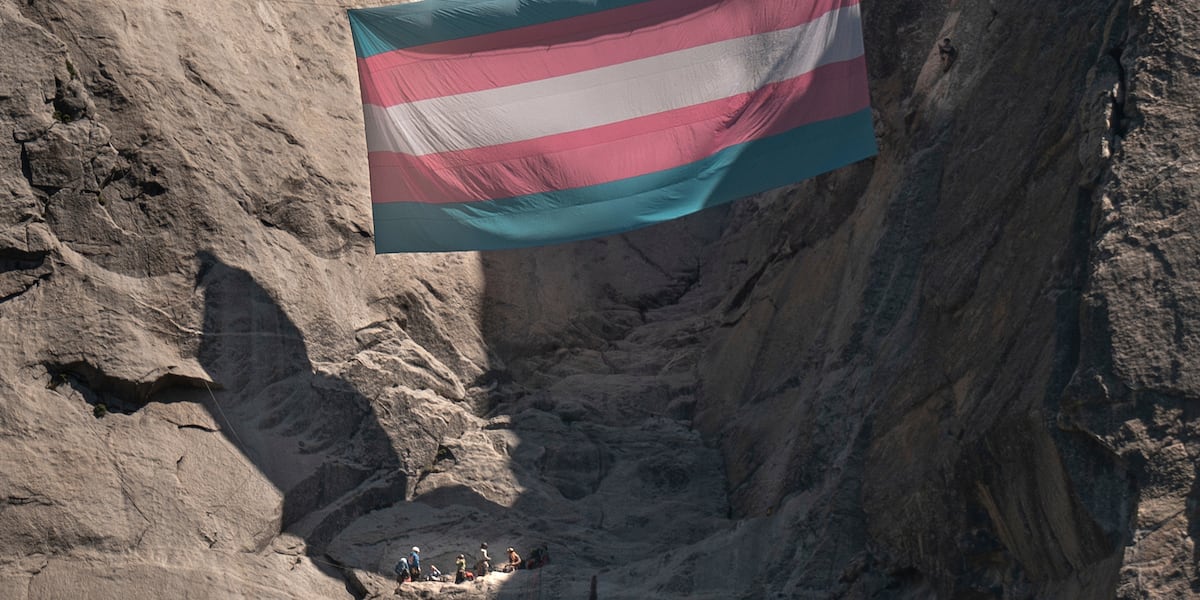Was a National Park Ranger Fired for Displaying a Transgender Flag in Yosemite?

This article discusses the firing of Shannon “SJ” Joslin, a Yosemite National Park ranger, after they displayed a transgender pride flag on El Capitan. The action, which took place on 20 May 2025, has raised significant controversy regarding free expression in national parks and the implications of recent restrictions on demonstrations under the Trump administration.
Last updated: 20 October 2023 (BST)
Key Takeaways
- Shannon Joslin was fired for displaying a 66-foot transgender pride flag at Yosemite.
- New restrictions on demonstrations in the park were enacted shortly after the flag was hung.
- Park officials are pursuing legal actions against those involved in the flag display.
- The firing has raised concerns about free speech for federal employees under the current administration.
- The National Park Service has seen significant staff reductions since Trump took office, impacting its operations.
Background on the Incident
On 20 May 2025, Shannon Joslin, a ranger and biologist at Yosemite National Park, hung a 66-foot wide transgender pride flag on El Capitan, a prominent climbing rock face in the park. This act, lasting approximately two hours, was intended as a personal statement of support for the transgender community amidst growing concerns about policies targeting LGBTQ+ individuals under the Trump administration.
Joslin stated, “I was really hurting because there were a lot of policies coming from the current administration that target trans people, and I’m nonbinary.” This sentiment reflects a broader concern among many regarding the potential impact of governmental policies on marginalized communities.
Consequences and Reactions
Joslin received a termination letter citing “failing to demonstrate acceptable conduct” in their role. This has sparked a backlash from fellow park employees and advocacy groups, who argue that the firing is an intimidation tactic aimed at suppressing dissent among federal workers. Joslin's colleagues, including two other rangers involved in the flag display, are currently on administrative leave pending further investigations.
Joanna Citron Day, a former federal attorney now with the advocacy group Public Employees for Environmental Responsibility, noted that flags had been displayed from El Capitan without repercussions in the past. The rapid enforcement of new restrictions following this incident has raised questions about the motivations and implications of these regulations.
New Regulations on Demonstrations
In the wake of the flag display, Yosemite's Acting Superintendent Ray McPadden enacted a new rule prohibiting the hanging of banners, flags, or signs larger than 15 square feet in designated wilderness areas, which encompass approximately 94% of the park. Park officials have justified these measures as necessary to protect the park’s natural resources and maintain visitor experiences.
National Park Service spokesperson Rachel Pawlitz stated, “We take the protection of the park’s resources and the experience of our visitors very seriously.” This statement underscores the tension between preserving park integrity and allowing free expression within federal spaces.
The Broader Context of Free Expression in National Parks
The controversy surrounding Joslin’s termination and the new restrictions on demonstrations reflects a larger national conversation about free speech and the rights of federal employees. Many advocates argue that the ability to express personal identities and beliefs should not be stifled by governmental policies, especially in public spaces like national parks, which are meant to be inclusive for all.
Additionally, the National Park Service has designated “First Amendment areas” within various parks, allowing for limited protests without permits. Yosemite is among those parks, offering designated spaces for demonstrations, albeit with specific rules.
Impact of the Trump Administration on National Parks
Since taking office, President Trump has implemented policies that many assert have negatively impacted the LGBTQ+ community, including limiting access to gender-affirming medical treatments and restricting transgender individuals from military service. These actions have created an environment where federal employees like Joslin fear repercussions for expressing their identities or beliefs.
Moreover, the National Park Service has faced significant budget cuts and staffing reductions during Trump’s presidency, losing approximately 2,500 employees from a workforce of around 10,000. This decline has raised concerns about the agency's ability to maintain its parks and uphold regulations effectively.
Public Response and Advocacy
The public reaction to Joslin’s firing has been overwhelmingly supportive, with many advocating for their reinstatement. Pattie Gonia, an environmentalist and drag queen involved in the flag display, called Joslin’s termination unjust and highlighted their contributions to the Yosemite community. Gonia’s involvement in raising awareness about conservation and LGBTQ+ rights positions them as a prominent voice in this discourse.
Advocacy groups are rallying around Joslin, suggesting that their case could set a precedent for how free speech is treated among federal employees. The implications of this incident extend beyond Yosemite, resonating within other government sectors facing similar challenges.
What Happens Next?
As the investigation into the flag display continues, park officials are working with the U.S. Justice Department to pursue potential criminal charges against those involved. This situation will likely evolve as more information comes to light, and the repercussions for Joslin and their colleagues remain uncertain.
Additionally, ongoing advocacy efforts may challenge the legality and appropriateness of the new regulations imposed on demonstrations in national parks. The outcome of these discussions could have lasting effects on the rights of individuals to express their identities and beliefs in public spaces.
Concluding Thoughts
The firing of Shannon Joslin has ignited a complex conversation about free speech, identity, and governmental policy in the context of national parks. As the situation unfolds, it remains crucial for advocates and the public to engage in discussions that uphold the rights of individuals while balancing the preservation of natural spaces. The outcome of Joslin's case could serve as a pivotal moment in defining the boundaries of free expression for federal employees.
As we reflect on these events, one must consider: how can we ensure that public spaces remain inclusive and supportive for all identities? #FreeSpeech #LGBTQRights #NationalParks
FAQs
What led to Shannon Joslin's firing?
Shannon Joslin was fired for displaying a transgender pride flag on El Capitan, which park officials deemed a violation of conduct standards and regulations related to demonstrations.
What are the new restrictions on demonstrations in Yosemite National Park?
New restrictions prohibit the display of banners, flags, or signs larger than 15 square feet in designated wilderness areas, which cover 94% of the park.
How has the Trump administration affected the National Park Service?
Under the Trump administration, the National Park Service has experienced budget cuts and staff reductions, impacting its operations and the ability to enforce regulations.
What are First Amendment areas in national parks?
First Amendment areas are designated spaces within national parks where individuals can protest without a permit, typically limited to groups of 25 or fewer people.
What actions are being taken against those involved in the flag display?
The U.S. Justice Department is working with park officials to pursue administrative actions against employees and potential criminal charges against visitors involved in the flag display.
Published: 2025-08-20 02:33:33 | Category: Trump GNEWS Search



